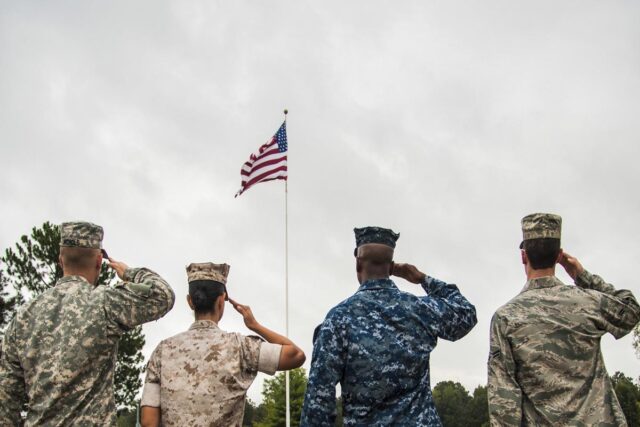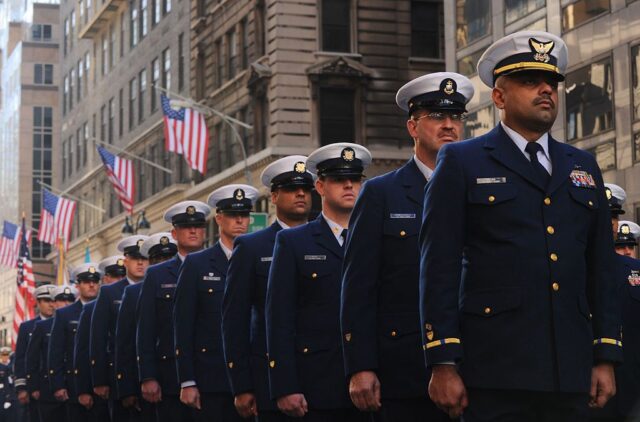
After serving several years in the military, you get used to a certain environment and lifestyle. As a military officer, you are entitled to multiple health, financial and legal benefits. SCRACVS provides the most efficient and quick services to verify military status, which can even be useful to you or your loved ones down the line to prevent any legal penalties.
Taking that leap of faith, whether after 10 or 20 years of service, is always a mix of different emotions. Almost 200,000 military members retire from their job every year and if you are planning to do so, remember that you’re not alone to go through this.
However, almost every veteran faces these challenges once they have made a decision to retire.
Challenges of Transitioning to Civilian Life
Adapting to a New Lifestyle

Transitioning from the military to civilian life has a difference of day and night especially regarding the lifestyle. It’s not only the veterans who feel a drastic change in their routine and living pattern but it’s also their family members.
This one decision doesn’t only affect military members but also the entire family. For instance, veterans have the responsibility to reestablish their role in the family and try to create new connections with them. They also need to adjust their habits in accordance with the rest of the family, which might feel a bit weird at the start but this challenge can be slowly overcome with time.
Joining a New Community
Generally, the government provides military members residency in a particular city. However, once they retire, this right is basically waived off and the entire family has to move to a new place and most importantly, a new community.
This may be even hard for young children as they have to say goodbye to their friends in school and neighborhood. Overall, every member of the family who was once accustomed to the area and people has to start over from scratch.
Preparation to Get Into a New Work Environment

A veteran may not be really familiar with a resume as Field Service Record is required by the military instead of a resume. Therefore, they may find it quite challenging to create a resume.
Moreover, veterans who have only served in the military in their entire life also won’t be familiar with how to look for a civilian job, how to apply, and even how to give an interview for the job. All of this may overwhelm them.
Adjusting to the Work-Life
The work-life in the military differs completely from the civilian one. Your work doesn’t revolve around completing missions instead you are supposed to work on a 9 to 5 job every day.
In addition to this, military members are used to collaborating in groups and working as a team, whereas companies have quite a competitive environment. The modes of communication are also different. Most veterans find transitioning to this phase quite challenging.
Managing Services

As most of the services are provided to military members absolutely free of cost such as dentist, doctor, education, etc.
They have to learn to find these services on their own as soon as they retire. Finding a doctor as good as the previous one or switching to a completely new doctor may also be an obstacle.
Benefits after Retiring from Military
There may be some challenges for veterans after being retired but it sure does come with several benefits.
Military Retirement Pay

The military has several retirement plans and the retirement plan that you will be entitled to depends on the years of service that you have offered to the military and your grade.
Generally, you have to serve for a minimum of 20 years to be entitled to full retirement pay. On average, you can expect to be paid around half of your base pay upon retirement.
Military Medical Benefits
A veteran and their spouse can get medical benefits as soon as they are retired. Veterans are required to go through a medical exam to determine their ailments or any other major disease and if you don’t have any currently, you are still eligible to get the medical benefits later. Ex-military members can also receive disability benefits.
Additional Benefits

If a veteran retires near a military base, they and their family may be entitled to additional benefits from the commissary, gas stations, gyms, and more. You can also receive financial aid for your dentist visits and eye care.
Additionally, a veteran has the right to free legal assistance for their entire lives so their legal matters become a breeze for them.
How to Make Life Easier as a Military Veteran after Retirement?

While the entire transitioning process may seem daunting, with a few right steps, you will be ready to easily deal with life after being retired.
Financial planning
If you’re planning to retire after six months, you must start saving already, as you don’t want to cope with financial difficulties after being recently retired. Having no financial stress on the mind can make the entire process seamless, even if it takes more than a few months for you to find a new job.
As a non-military member, you will also be required to pay taxes on your income which you didn’t have to before. Therefore, having savings will help you with this stress as well.
Start applying for jobs

In order to get a job, you need to market yourself. Use platforms like LinkedIn and create a professional profile of yourself. Take the help of a fellow veteran who has gone through the same phase. If a job requires certain certifications or skills, try to get them, so you’re at least eligible for the job.
Transition Assistance Program
The military provides a transition assistance program to recently retired military members to help them cope with civilian life. Enrolling in this program will help you get answers to your questions and the right direction for your future.












